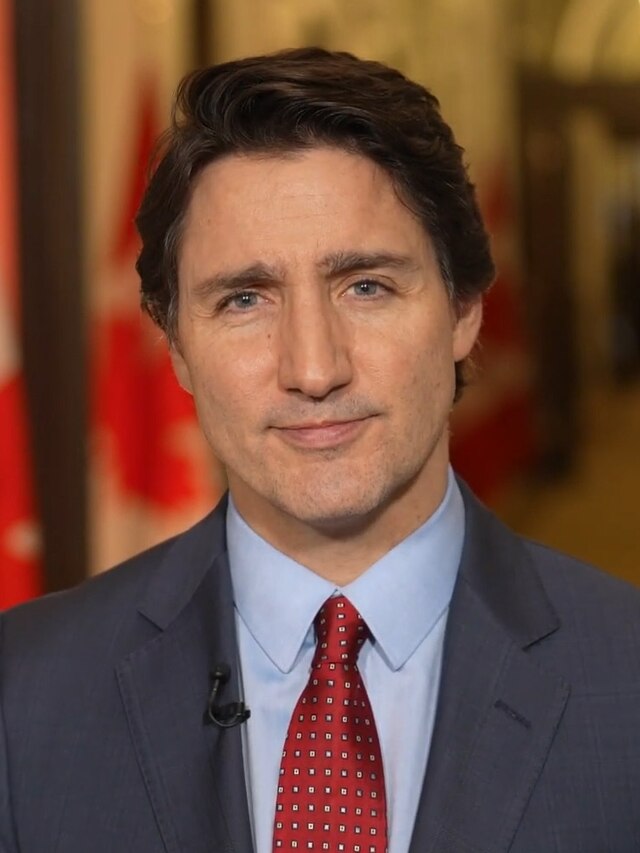Justin Trudeau Resigns as Canadian Prime Minister Amid Mounting Pressures
Canadian Prime Minister Justin Trudeau announced his resignation on Monday, stepping down after serving as the leader of the Liberal Party for 11 years. The news has sent shockwaves through the Canadian political landscape, coming at a time of declining poll numbers, internal party dissent, and increasing criticism of his handling of critical economic issues ahead of the impending federal election.
The Makings of a Political Transition
Trudeau’s resignation marks a significant turning point for the Liberal Party, which is now tasked with navigating a turbulent transition. The next leader will face an array of formidable challenges, including skyrocketing living costs, a pressing immigration crisis, and economic pressures anticipated under the administration of U.S. President-elect Donald Trump. Additionally, the Liberal Party must contend with a resurgent Conservative Party that is poised to capitalize on Trudeau’s exit and position itself as the leading challenger in the elections expected no later than October.
According to the Canadian Broadcasting Corporation, the process to select the subsequent leader of the Liberal Party will occur through a national leadership contest. Sachit Mehra, president of the Liberal Party, emphasized the importance of a swift and democratic selection process, stating, “A meeting to initiate this process will be held this week.”
Top Contenders in the Leadership Race
As the Liberal Party prepares for a leadership contest, several prominent figures are being considered as potential successors to Trudeau. Each candidate brings unique strengths, challenges, and political experiences that will influence the future direction of the party.
Chrystia Freeland
Former Finance Minister Chrystia Freeland emerges as one of the frontrunners in the leadership race. Following her resignation from Trudeau’s Cabinet last month, Freeland made a stark critique of her former leader’s economic policies, denouncing controversial measures like a proposed sales tax holiday and direct cash payments to Canadians as “costly political gimmicks” that Canada could not afford, especially given the anticipated economic fallout from Trump’s proposed tariffs on Canadian goods.
While Freeland’s tenure as Deputy Prime Minister, along with her reputation as a principled advocate, positions her as a strong contender, her association with Trudeau’s administration could limit her appeal among voters seeking a fresh perspective. Moreover, her strained relationship with Trump—who has labeled her as “totally toxic”—could complicate U.S.-Canada relations under her possible leadership.
Mark Carney
Another name gaining traction is Mark Carney, the former governor of the Bank of Canada and the Bank of England. Despite lacking prior experience in elected office, Carney is widely respected for his economic acumen. He played a pivotal role in guiding Canada through the 2008 financial crisis and managing economic turbulence in England during Brexit.
Though Carney’s accomplishments in economic management are noteworthy, critics have begun to characterize him as a protégé of Trudeau, which may alienate voters who desire a departure from the past. Reports from the New York Times suggest that he may be Trudeau’s favored successor, adding another layer of complexity to his candidacy.
Dominic LeBlanc
Finance Minister Dominic LeBlanc, known for his unwavering loyalty to Trudeau, is also considered a key candidate. LeBlanc, often referred to as Trudeau’s “fixer,” is recognized for his ability to tackle challenging issues effectively. His close ties to Trudeau may hinder his efforts to present himself as a transformative leader, and while he has showcased his diplomatic skills through recent engagements with Trump, his connections could be seen as a double-edged sword.
Mélanie Joly
Foreign Affairs Minister Mélanie Joly is another emerging contender in the Liberal leadership race. With substantial experience managing high-stakes foreign policy matters like tensions with China and India, she is viewed as capable of steering the party into the future. However, her relative inexperience in domestic governance poses a challenge as the Liberal Party seeks a seasoned leader to navigate ongoing crises.
Christy Clark
Former British Columbia Premier Christy Clark has publicly expressed her interest in entering the leadership race. As an outsider to Trudeau’s administration, Clark could bring new energy to the party. Her background and political independence may resonate with voters yearning for change after years of Trudeau’s leadership. She has indicated her desire to “help shape the future direction of the Liberal Party and the country.”
Frank Baylis
Businessman and former Montreal MP Frank Baylis has emerged as the first candidate to formally declare his intention to run for leadership. With his background as an electrical engineer and successful entrepreneur, Baylis believes that his unique qualifications position him well to tackle Canada’s economic challenges and engage in negotiations with the Trump administration. “There’s a need for a non-professional politician,” Baylis stated affirmatively.
A Party at a Crossroads
The Liberal Party is poised at a critical juncture as it prepares to redefine its identity following Trudeau’s resignation. Conservatives have rallied in response to his departure, viewing it as a political victory. Pierre Poilievre, the leader of Canada’s Conservative Party and a vocal critic of Trudeau, has positioned himself as a leading opposition figure who could potentially unseat the Liberals in the forthcoming election.
The Road Ahead
As the leadership race unfolds, the future of the Liberal Party hangs in the balance. The selection of Trudeau’s successor will be critical in determining the party’s ability to rally support and confront the mounting challenges facing Canada. With a host of contenders vying for leadership and the Conservative Party capitalizing on perceived vulnerabilities, Trudeau’s resignation marks the beginning of a pivotal chapter in Canadian politics.
In conclusion, the Liberal Party must navigate a complex political landscape as it adapts to significant changes and anticipates the challenges of the future. Whether the new leadership can revive the party’s fortunes remains to be seen as they head into a closely watched election cycle.
